© 2025 MJH Life Sciences™ , Patient Care Online – Primary Care News and Clinical Resources. All rights reserved.
Esophageal Dysphagia in a Young Immigrant Woman
The 21-year-old recently immigrated from Mexico. She has had trouble swallowing both solids and liquids x4 months. The clue to diagnosis is a subtle one.
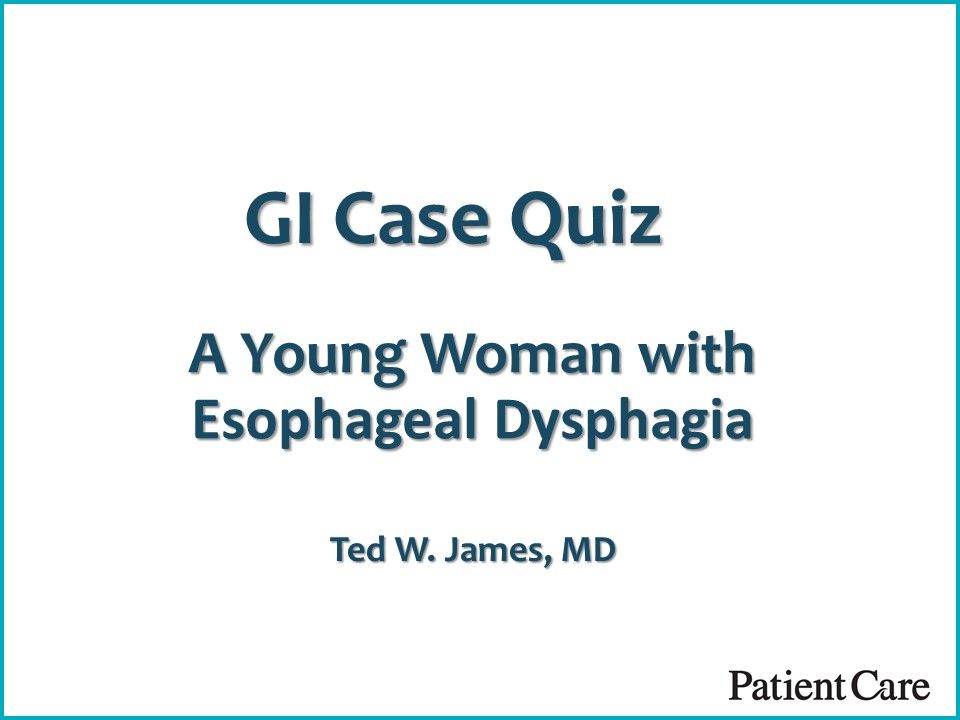
GI Case Quiz -- Esophageal dysphagia has casued a 10-lb weight loss in a young Mexican woman
recently immigrated to the United States from Mexico. Can you diagnose?
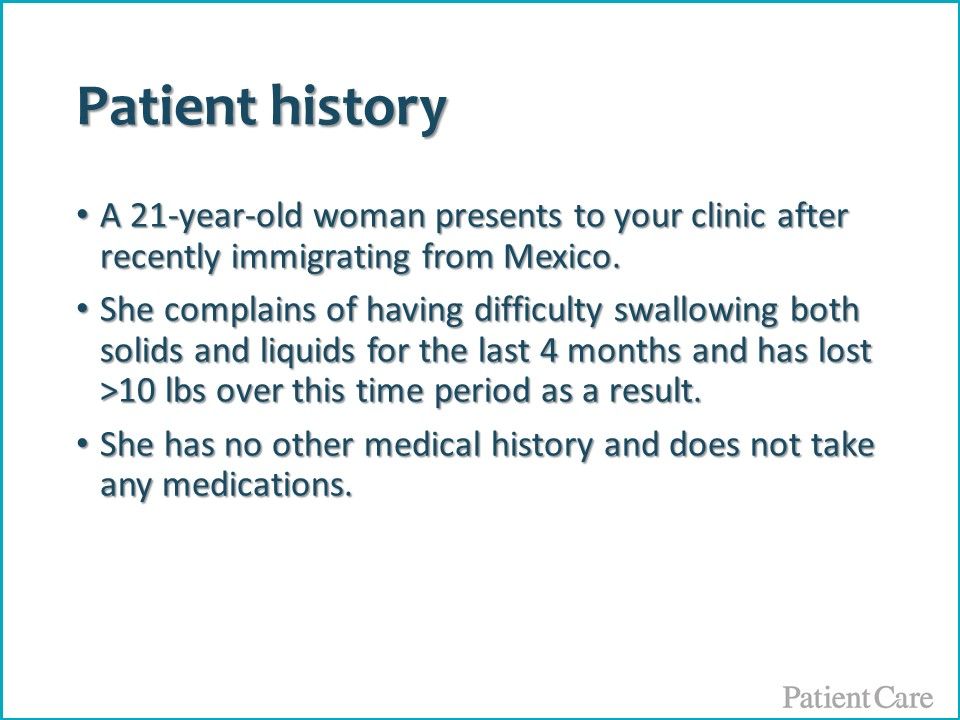
Patient history. A 21-year-old woman has recently immigrated to the United States from Mexico; she presents to your clinic with complaints of difficulty swallowing both liquids and solids for about 4 months. She says she has lost about 10 lbs as a result. She has no other medical history and does not take any medications.
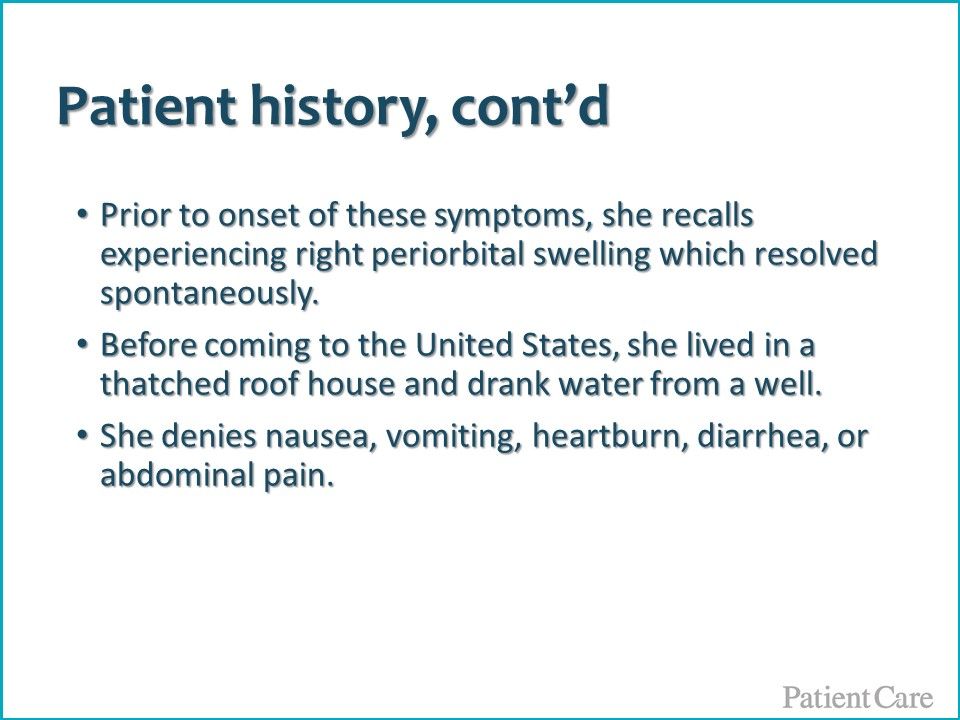
Patient history, continued. The only thing out of the ordinary that she can recall before onset of these symptoms is experiencing right periorbital swelling which she says went a way on its own. Before coming to the United States, she lived in a thatched roof house and drank water from a well. She denies nausea, vomiting, heartburn, diarrhea, or abdominal pain.
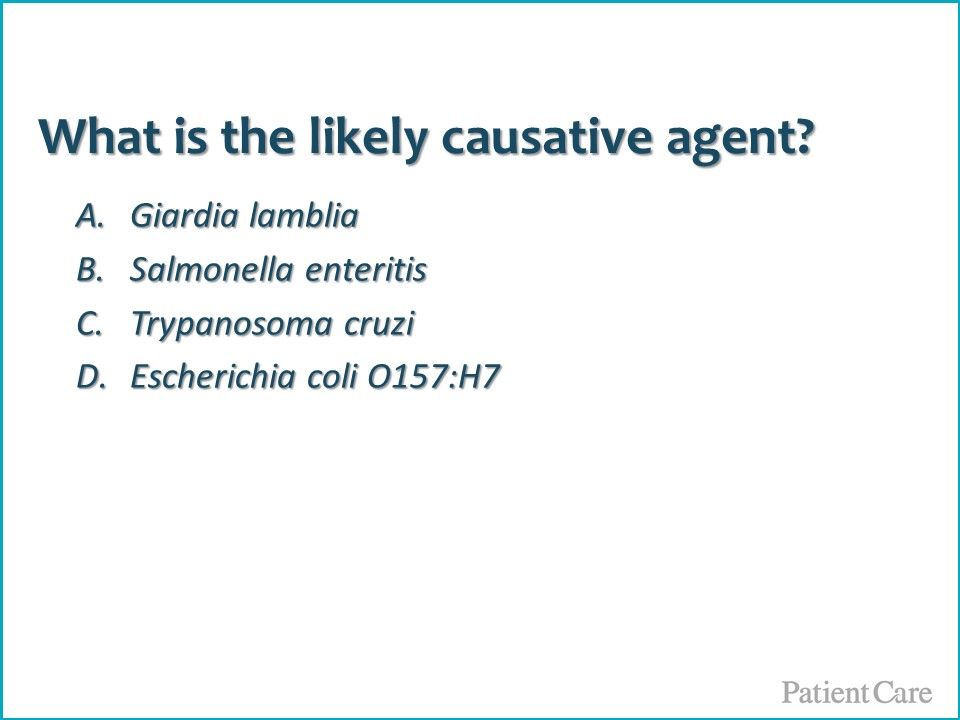
Which of the following is most likely to be the causative agent: Giardia lamblia, Salmonella enteritis, Trypanosoma cruzi, Escherichia coli O157:H7
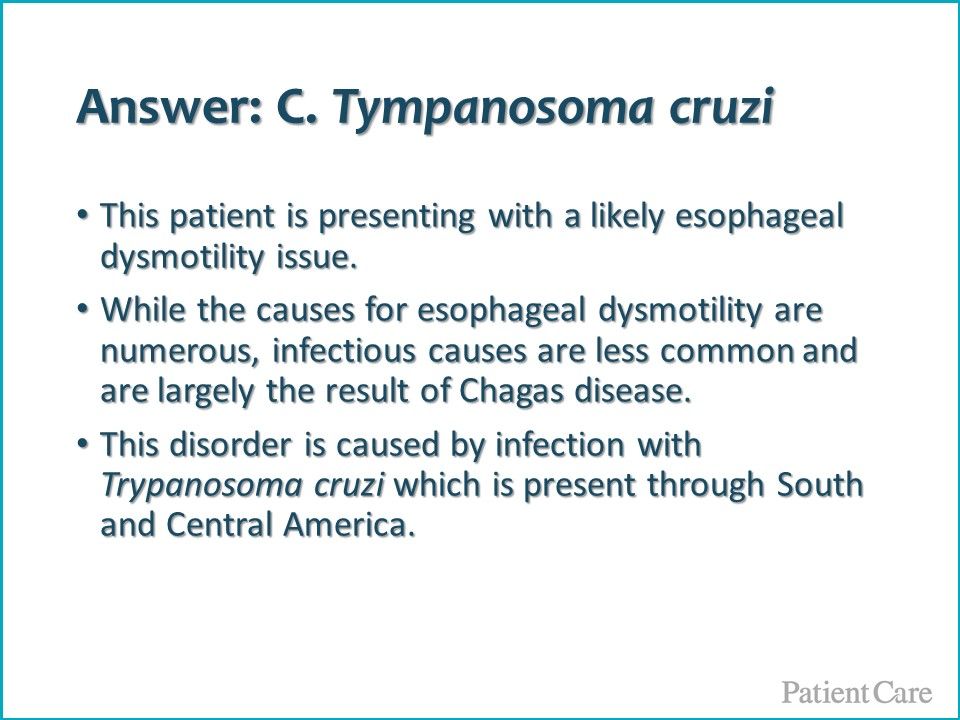
Answer: C.Trypanosoma cruzi This young woman likely is experiencing an esophageal dysmotility issue. The causes for esophageal dysmotility are many but infectious causes are less common and most often the result of Chagas disease. This disorder is caused by infection with Trypanosoma cruzi which is present through South and Central America.
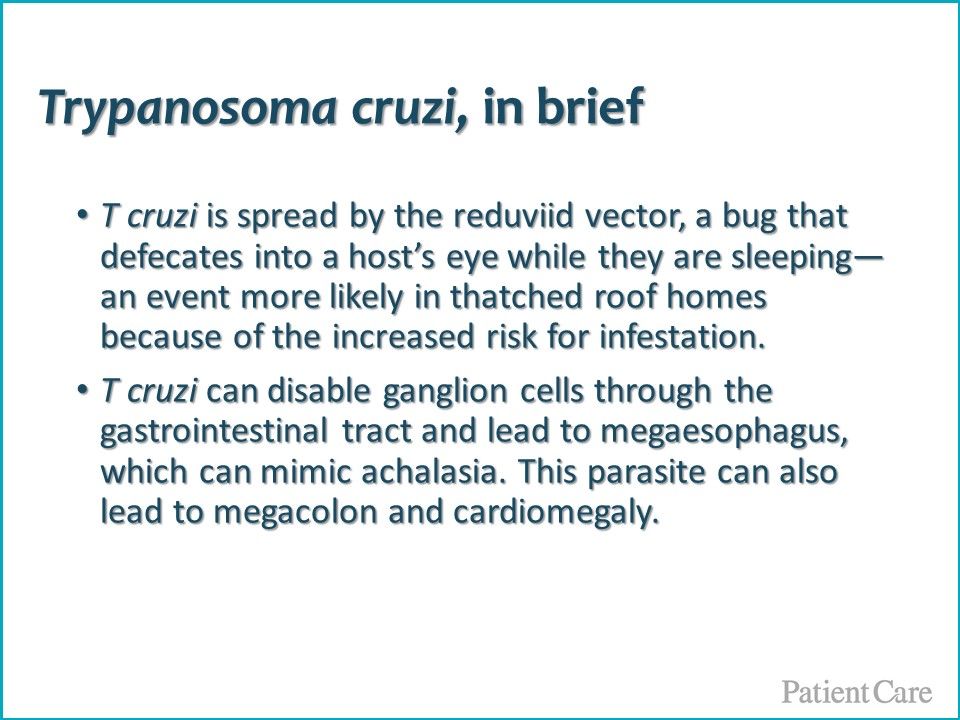
Trypanosoma cruzi, in brief. The primary vector for T Cruzi is the reduviid bug which defecates into a host’s eye while the host is sleeping-an event more likely in thatched roof homes because of the increased risk for infestation. T cruzi can disable ganglion cells through the gastrointestinal tract and lead to megaesophagus, which can mimic achalasia. This parasite can also lead to megacolon and cardiomegaly.
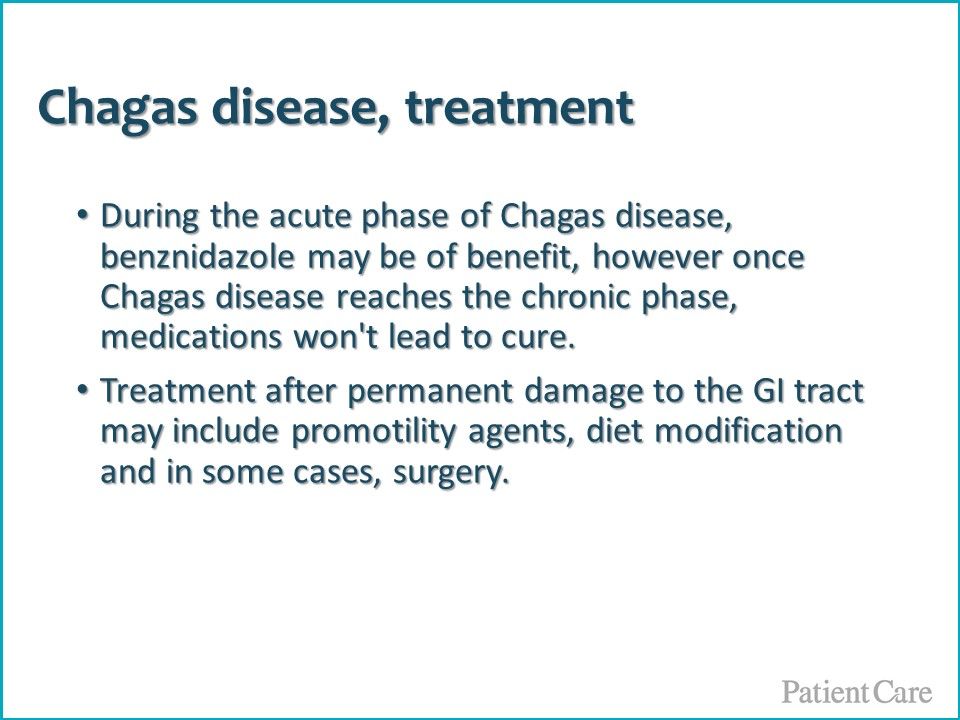
Chagas disease, treatment. Benznidazole may be effective during the acute phase of Chagas disease but no medications will lead to cure once the disease reaches the chronic phase. Treatment after permanent damage to the GI tract may include promotility agents, diet modification and in some cases, surgery.
Related Content:



